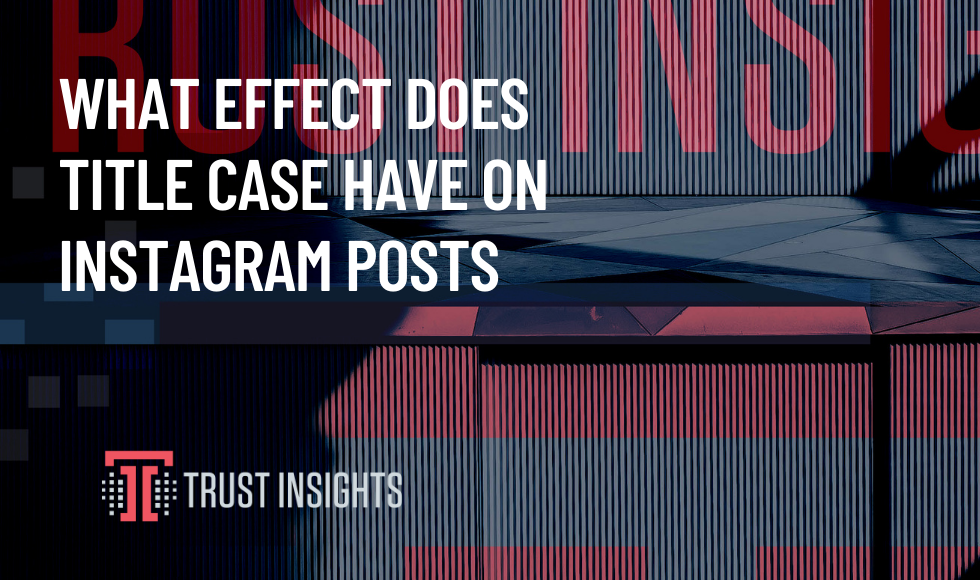This data was originally featured in the March 10, 2021 newsletter found here: https://www.trustinsights.ai/blog/2021/03/in-the-headlights-march-10-2021-title-case-in-social-posts-becoming-data-driven-ga4-easy-wins/
In this week’s Rear View Mirror, we’ll answer Diana’s question. What effect does Title Case have on engagement of Instagram posts?
To answer this question, we have to do a few things. First, we need to import captions/descriptions from Instagram, then identify which posts use which case. In many coding languages, you can filter and sort things by case using a technique called regular expressions, so we identified and separated out posts that were all caps (which there were quite a few, some folks really love the caps lock key), posts that were Title Case, and posts that were Sentence case or no case at all.
What did we find?

For posts that use Title Case, after controlling for account size and similar caption lengths, we see 94% more likes, 137% more views, and 144% more comments than posts that do not use Title Case.
Now, does that mean we should all run out and switch everything to Title Case? Of course not. What we have here is an association, but absolutely no causation. This only demonstrates that there IS a difference between the two.
So what’s the key takeaway? There’s some kind of association between case usage and post-engagement. Your next step is to run tests of your own; this is an aggregate of thousands of Instagram accounts. It does not reflect your audience’s specific behavior and interests, so run some tests of your own. Try different cases to see how engagement changes, if at all, in your own social posting.
Methodology: Trust Insights used Facebook’s Crowdtangle software to extract 4,221,821 posts from 7,651 brands. Captions were counted by cases, separated, and then sampled into 25,000 Title Case captions and 25,000 non-Title Case captions. The dates of extraction are January 1, 2020 – February 16, 2021. The date of the study is March 10, 2021. Trust Insights is the sole sponsor of the study and neither gave nor received compensation for data used, beyond applicable service fees to software vendors and declares no competing interests.
|
Need help with your marketing AI and analytics? |
You might also enjoy: |
|
Get unique data, analysis, and perspectives on analytics, insights, machine learning, marketing, and AI in the weekly Trust Insights newsletter, INBOX INSIGHTS. Subscribe now for free; new issues every Wednesday! |
Want to learn more about data, analytics, and insights? Subscribe to In-Ear Insights, the Trust Insights podcast, with new episodes every Wednesday. |






